Njamito Goes Fairtrade for Cocoa and Vanilla
March 31, 2025Njamito is now Fairtrade certified for cocoa and vanilla! Here’s what that means for farmers, the planet, and the values behind our meal-in-a-bottle.
Read articleOur data-driven approach to traceability enables comprehensive data collection at every step of the production process.
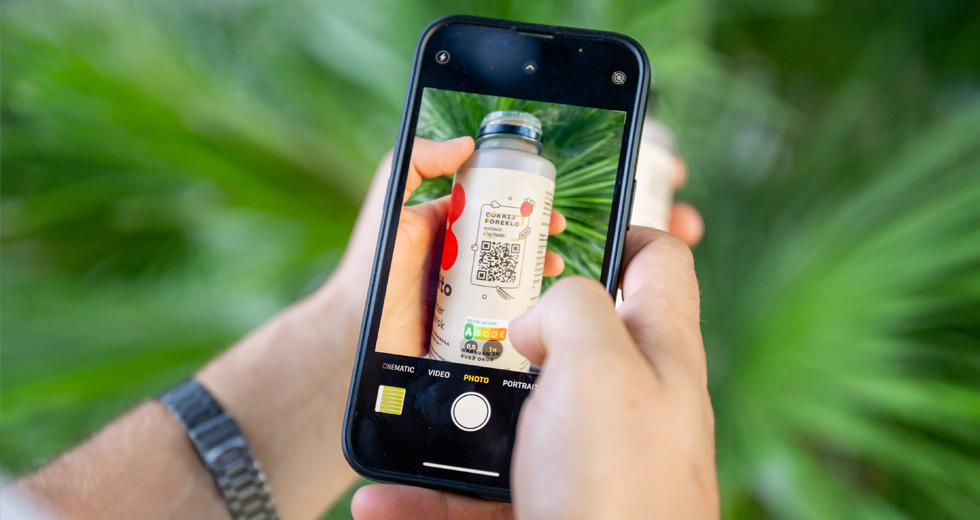
We are dedicated to ensuring and transparently sharing full traceability of our produce, enabling tracking from field details & weather conditions, seeding, production all the way to the final point of sale. Here’s how we do it:
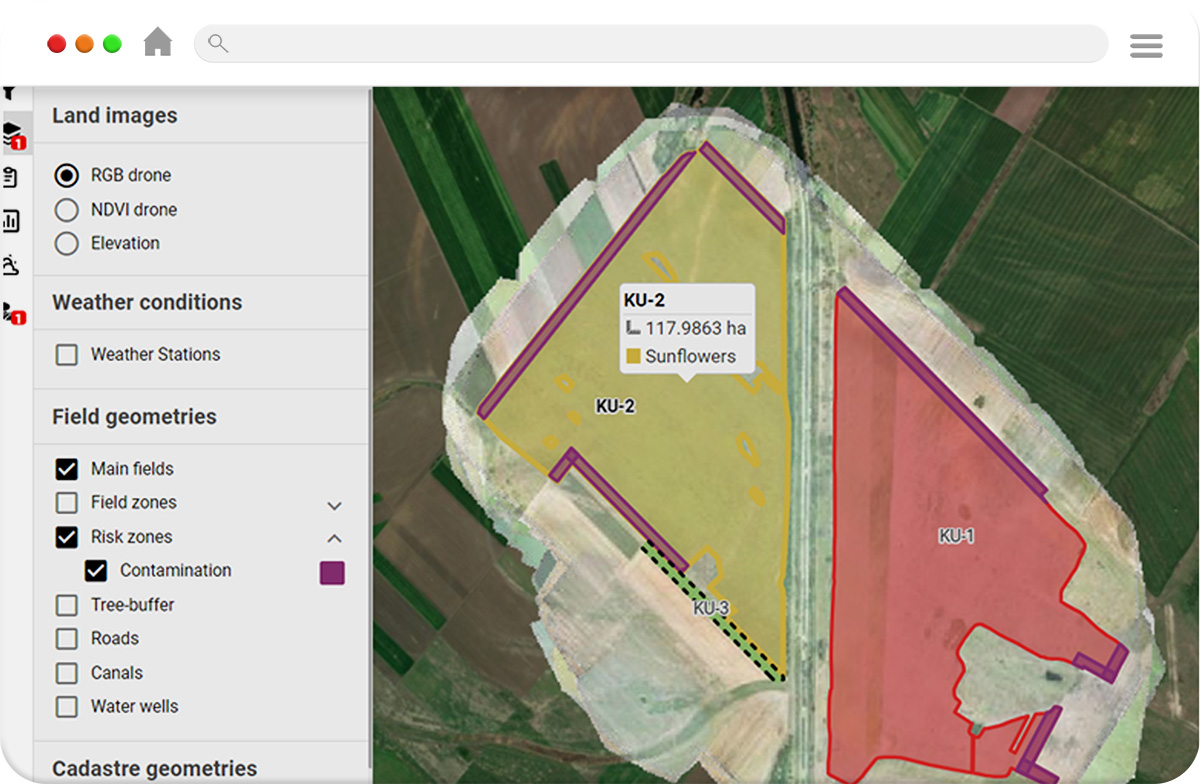
We start by identifying potential risks surrounding our plots. We establish buffer zones based on priorities, scoring risk status using criteria including plot size and shape, the presence of neighboring farms using conventional farming methods, crop type and position, and estimated risk percentage. Risk zones are set 40 meters from neighbors’ cadaster edges, and this information is then integrated into our Farming Software, and from there to our tractors and combines.
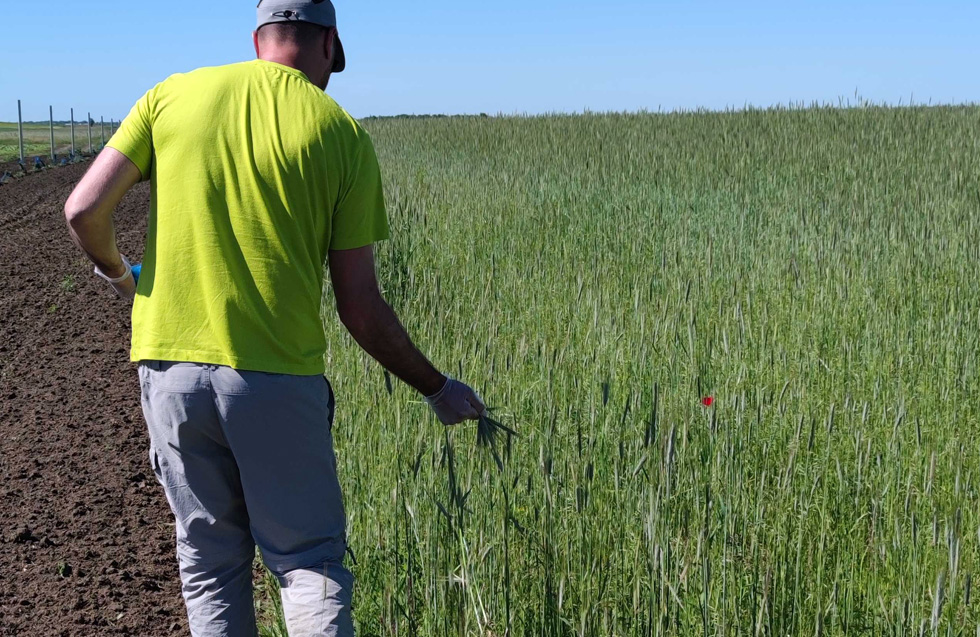
Two weeks before the harvest, an accredited laboratory samples plant material. If tests detect pesticide residues that came from neighboring farms, risk zones are activated. This information is then transferred from our Farming Software to the combines. This ensures that the harvested crops from those areas, though organically produced without harmful pesticides and artificial fertilizers, follow strict separation procedures, are stored separately, and then sold as crops without organic certificates.
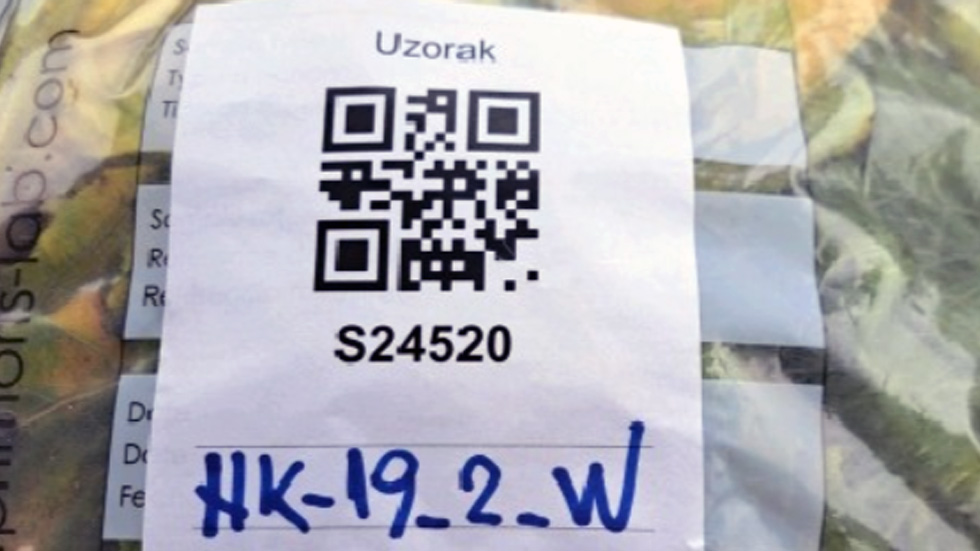
Control points are established for both sampling and quality control during the harvest, utilizing our custom Samples & Analysis app. An accredited control body oversees the sampling and control processes at the silo, ensuring adherence to all quality parameters.
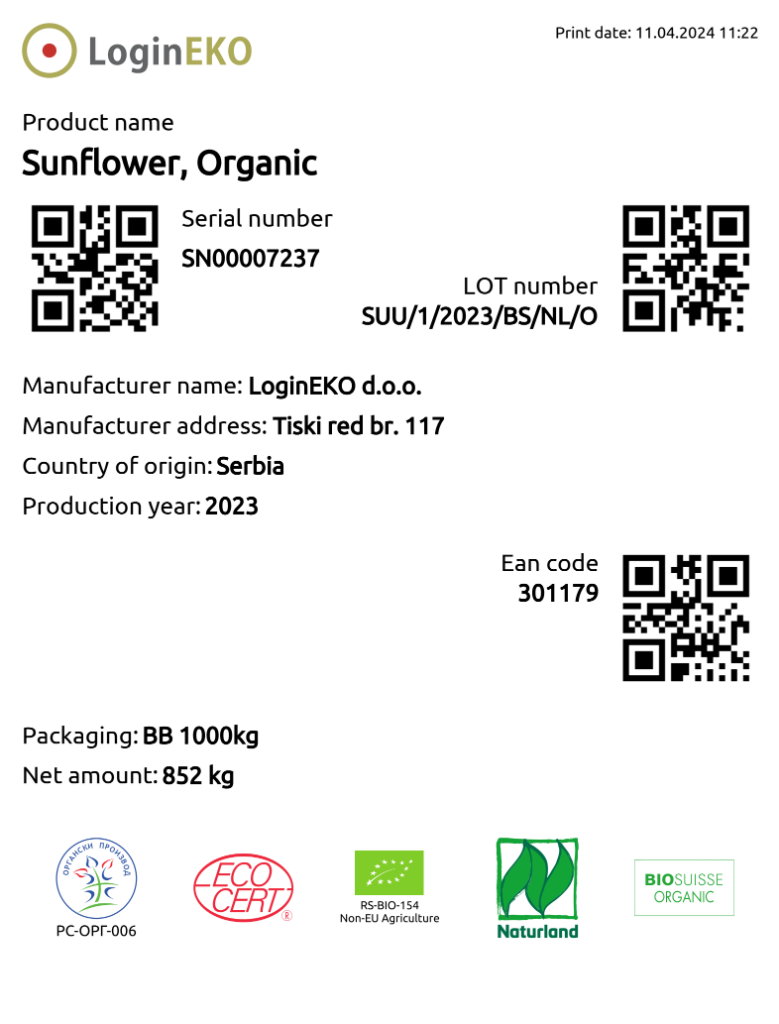
During the harvest, each field is assigned a LOT ID (field LOT ID), and a grain sample is taken from each field. These samples are retained until all goods from storage have been sold. For logistical optimization, yields from several fields are stored together in a single silo cell, and a new LOT ID is created (final LOT ID). Through precise data capture and our Farming Software, we can easily track how field LOTs are merged into final LOTs.
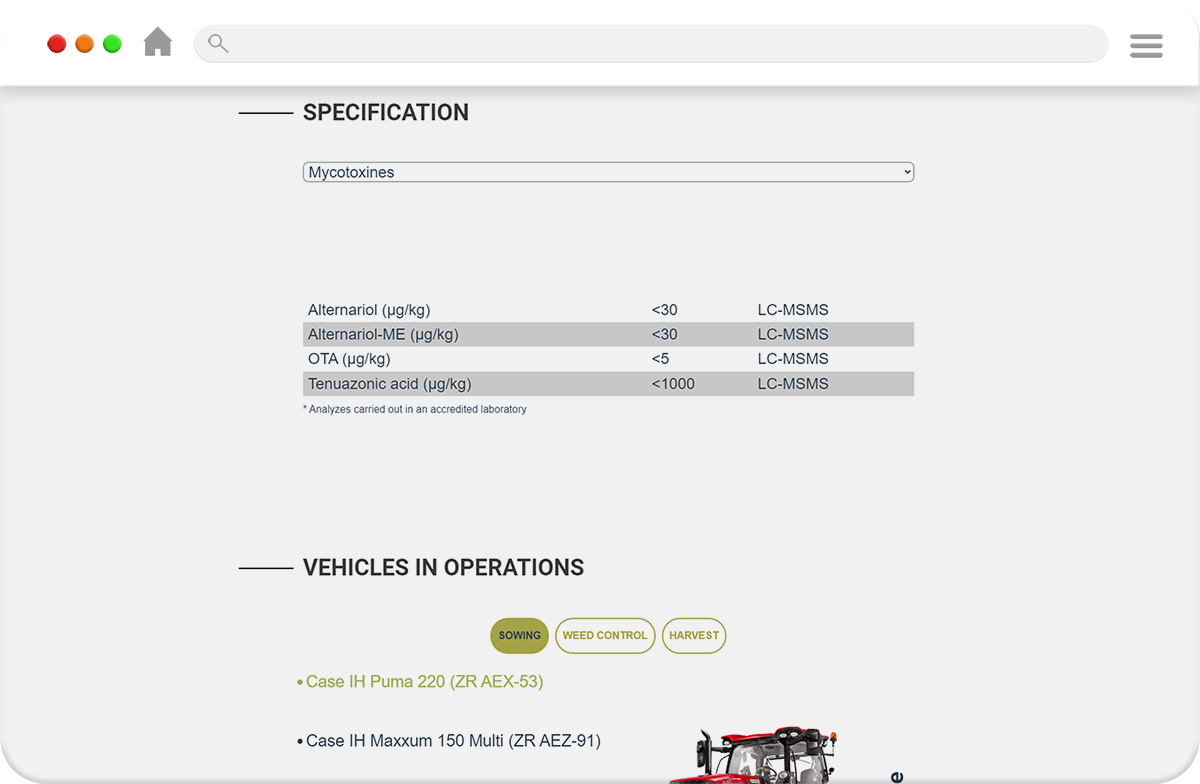
Every final LOT undergoes analysis in accredited laboratories before sale, checking for culture-specific quality parameters, contaminations (heavy metals, mycotoxins, pesticides, microbiology), and other specific parameters that may be requested by buyers or for addressing additional risks. All analysis results for each LOT are added to our traceability reports, which are publically available for all our crops on our website.
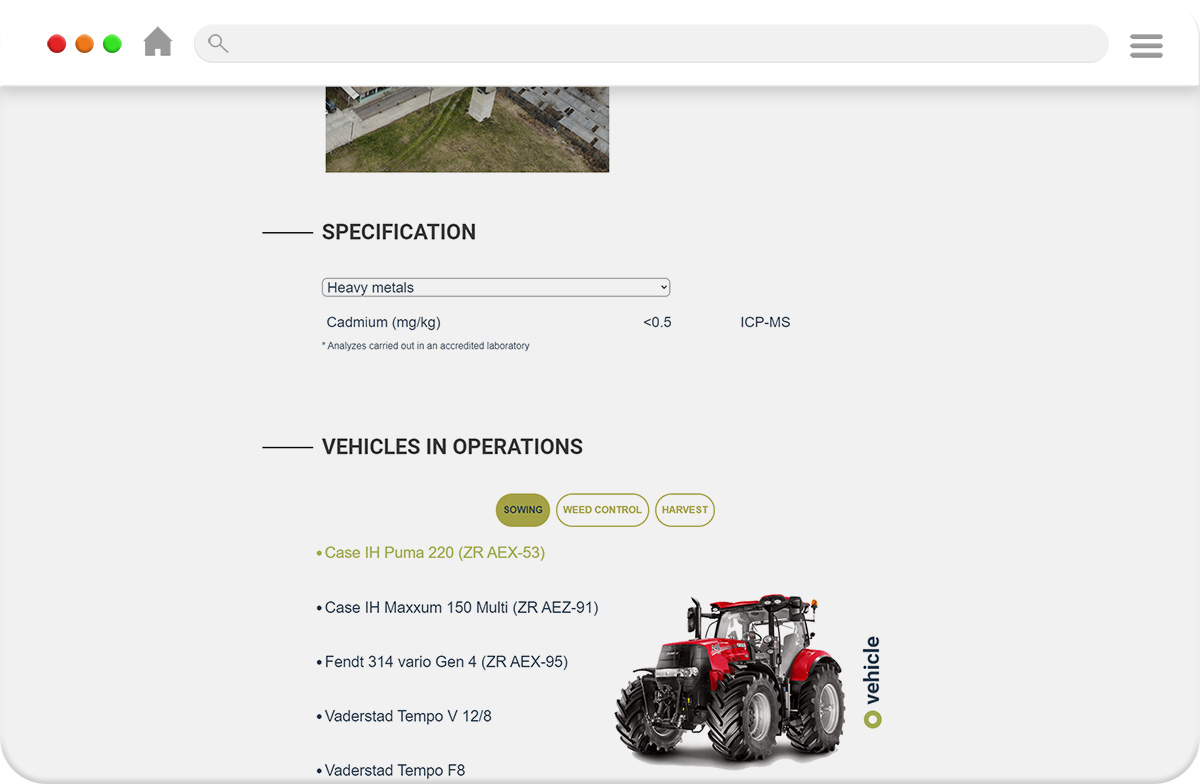
While already meeting Organic RS, EU, Bio Suisse, and Naturland standards, we are elevating our sustainability practices to the next level. Our distinctive approach includes an advanced risk rating model and proactive management strategies, setting us apart from other organic producers. This strategy enables us to safeguard our crops and plots against potential contamination through meticulously defined risk zones, ensuring that our practices are not only maintained but continually enhanced with each passing season. In our latest initiative, we are refining our Risk Rating Tool, enabling our agronomists to make informed decisions regarding the activation of Risk Zones for high-risk plots, and determining which plant material requires sampling in medium-risk plots.
Furthermore, we implement comprehensive measures such as pre-harvest pesticide residue analysis, conservation of grain samples from each field, and strategic planning in the amalgamation of field lots, elevating our standards and leading by example in the agricultural industry.
Through the measures described, we’re demonstrating that achieving full traceability in agriculture and sharing it transparently is not just a theory, but a practical reality. We believe that full traceability and transparency foster fairness in the process. They also strengthen the trust between farmers and their buyers and empower consumers to make informed choices about the food they purchase. Additionally, traceability and transparency enable governments to promote sustainable practices and offer incentives to farmers and food producers more effectively, thus facilitating the transformation of the food system into a sustainable one.
Njamito is now Fairtrade certified for cocoa and vanilla! Here’s what that means for farmers, the planet, and the values behind our meal-in-a-bottle.
Read articleIdealism met reality as we launched our meal-in-a-bottle, Njamito. After 100.000 bottles sold, here’s what we learned about organic food and market adaptation.
Read articleWith organic seeds in short supply, we launched our own organic seed production journey to secure sustainable farming practices.
Read article